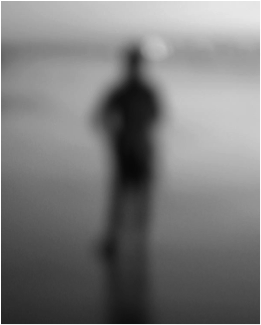Live concerts and live coding
A nice new video of our January Phonos concert is available now on Youtube (thanks, Sònia!).
Since then, we had a more intimate and playful performance (February 8) at a small art space called Niu – it went down really well (maybe drinks helped – audience and/or performers ;-)). We performed three pieces, including extended and more improvisatorial versions of CliX ReduX and Six Pianos (which didn’t use pianos at all this time, instead Hammond organs, electric guitar/bass and a few other funky things).
I updated CliX to use a synchronized clock (MandelClock) from BenoitLib. Proper synchronization between machines helped the piece a great deal, allowing us to get into some really interesting grooves, especially with the sampled sounds and projected video snippets. Caballé is always a hit… However, we did have a few glitches (still not 100% sure why), where the tempo would occasionally change without warning. It corrected itself within a few seconds, but was quite disconcerting (although several people in the audience claim not to have noticed anything wrong). In subsequent rehearsals the problem wasn’t as severe (I made some changes to reduce network traffic), but did still occur from time to time. I suspect it’s to do with lost or out-of-order OSC messages, which happens regularly on busy WiFi networks.
Most recently, the Barcelona Laptop Orchestra performed (March 8) as “pre-dinner entertainment” at the Polifonia conference (a mostly-European grouping of music conservatories), held in Barcelona. It was located in the restaurant area of the Museu Marítim, in a beautiful stone building that used to be part of the old shipyards. We were only performing CliX ReduX, and had managed to build to a nice “welcome” point after five or ten minutes, when suddenly – BOOM! – our power went out. (Everyone applauded; I assume because it was a particularly dramatic stop, but perhaps they were simply glad they could start eating.) Somewhere, we had tripped a circuit-breaker.
It took at least 15 minutes until we found a functional plug (downstairs, using an extremely long extension cord) and got the projector working. Our laptops waited patiently, chugging along on battery power. But by then, we’d lost some of our vibe, and the audience had moved on to chit-chat, toasting and appetizers. We performed the last section of our show, but I wouldn’t claim it was a huge hit. We did get free dinner out of it, though. I’m sure many of the classical music professors were thinking: “Hah - all this new-fangled technology, what a disaster! That’s why violins, pianos and oboes are better!”
In other news:

Live Coding Sessions II @ NiuBcn
I’ve agreed to perform at a live coding event at Niu, on March 22. Yikes, my first time flying solo. I’ve been spending the last few weeks trying things out in SuperCollider, but still (with only a week and a half left to go) haven’t found a good flow. I decided to set myself a constraint – skipping fancier synthesis techniques and only working with sine curves. Well, that’s the plan…

Glen Fraser (CA)
Glen Fraser (Canadá) siempre ha preferido la programación en vivo a la programación muerta. Aunque lleva un cuarto de siglo programando tanto por placer como profesionalmente, siempre lo ha hecho en la seguridad relativa de su casa u oficina. Ésta será la primera vez que programará con público. En esta actuación utilizará SuperCollider para explorar lo que él llama en inglés “Sines and Symbols” (o en su versión castellana: “Sinus in situ”). Actualmente es miembro de la Barcelona Laptop Orchestra y del colectivo wú::, en el que desarrolla tecnologías interactivas para las artes escénicas.
If you can’t read the Catalan on the Niu upcoming activities page or the Spanish on Arte Sonoro, here’s an English translation of my bit:
Glen Fraser (Canada) has always preferred “live coding” to dead coding. Although he’s programmed interactive graphics and sound for fun and profit for a quarter century, it’s always been from the relative safety of his home or office. This will be his first time doing it for an audience. In this performance, Glen will use SuperCollider to explore what he calls “Sines and Symbols”. He is currently a member of the Barcelona Laptop Orchestra and of the wú:: Collective, where he develops technology for the performing arts.
The concert is also mentioned on Modisti.